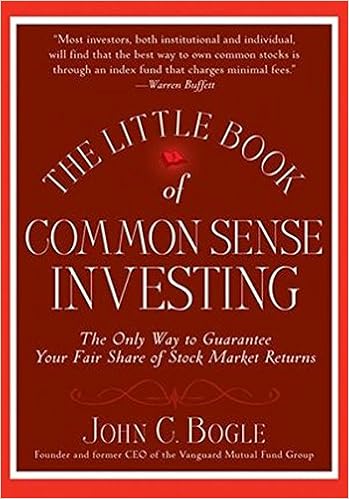
Good book. Simple advice. A bit repetitious. Good references/quotes from other finance folks. Maybe somewhat biased.
There are bits that agree with other investment books like "Invest Like a Pro: A 10-Day Investing Course" and "A Beginner's Guide to Investing: How to Grow Your Money the Smart and Easy Way"... and thankfully I haven't noticed any contradictions between them.
There are a few investment managers, of course, who are very good – though in the short run, it’s difficult to determine whether a great record is due to luck or talent.
Most advisors, however, are far better at generating high fees than they are at generating high returns.
Trying to beat the stock market is theoretically a zero-sum game (for every winner, there must be a loser), but after the substantial costs of investing are deducted, it becomes a loser’s game.
The simplest and most efficient investment strategy is to buy and hold all of the nation’s publicly held businesses at very low cost. The classic index fund that owns this market portfolio is the only investment that guarantees you with your fair share of stock market returns.
The real formula for investment success is to own the entire market, while significantly minimizing the costs of financial intermediation. That’s what index investing is all about. And that’s what this book is all about.
Two main points of the book are:
1. Minimizing fees by utilizing low-cost index funds will almost certainly be more profitable over the long term than actively managed funds. Yearly fees on some of the cheapest index funds are around .1% while actively managed funds usually range from .7% - 2%.
2. Tax minimization is one of the most important factors in investment success. The best way to minimize taxes is by investing in 401k accounts or Roth IRA accounts. In taxable accounts, the best way to minimize taxes is to purchase stocks and hold them for decades. Tax on gains is not paid until stocks are sold. Holding index funds for very long periods of time is a great strategy in taxable accounts for this reason.
There were a ton of big investment folks mentioned in the book which gave me more trust in the advice (including Benjamin Graham, writer of 'The Intelligent Investor')
*I largely plagiarized summaries of the book and stole good reviews to put this page together
No comments:
Post a Comment